Community-Based Tourism
Community-Based Tourism (CBT) represents a dynamic and ethical approach to travel in Uganda, shifting the focus from large-scale, external operators to local communities who take ownership and management of the tourism products and services.
In the "Pearl of Africa," where rich biodiversity coexists with diverse cultural groups from the Batwa Pygmies near Bwindi to the pastoralist Karamojong, CBT offers visitors an immersive, authentic experience far removed from conventional tourist bubbles.
These experiences, such as village walks, homestays, traditional craft workshops, and cultural performances, not only showcase Uganda's unique heritage but also ensure that the economic and social benefits of tourism remain directly within the communities, fostering a strong sense of pride and cultural preservation.
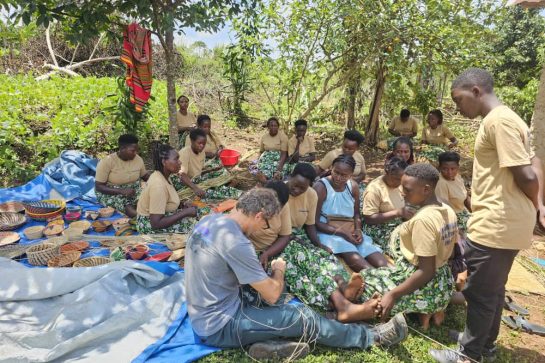
This model serves as a powerful tool for local empowerment and sustainable development, directly addressing poverty and environmental conservation. By generating income through guiding, accommodation, and handicraft sales, CBT provides alternative livelihoods, reducing reliance on environmentally destructive activities like poaching or illegal logging.
Notable successes include the Bigodi Wetland Sanctuary, run by the local community near Kibale National Park, Ride 4 a Woman, a charitable non-governmental organization in Bwindi, dedicated to empowering local women who face challenges like poverty, domestic violence, and a lack of education. It provides skills training in crafts, microloans, and a safe community center, allowing women to gain economic independence and uplift their families. There are other various initiatives around the gorilla habitats of Bwindi, where tourism revenue funds crucial social projects like schools and health clinics. For the responsible traveler, engaging in CBT means their spending actively contributes to community resilience, cultural integrity, and the long-term stewardship of Uganda's natural and cultural treasures.
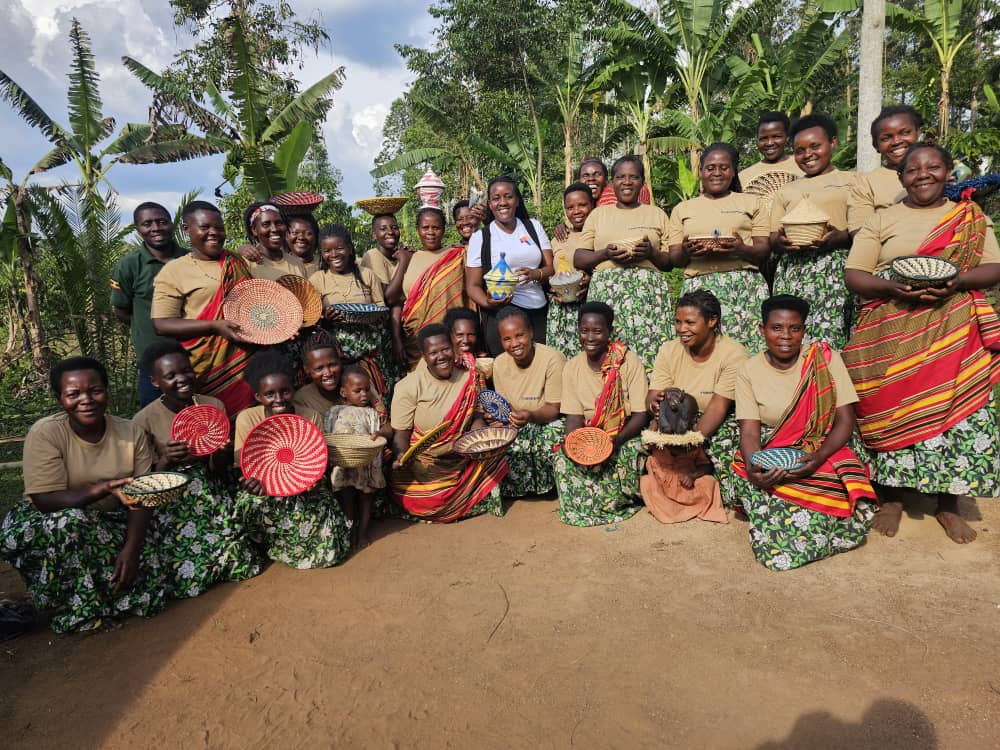
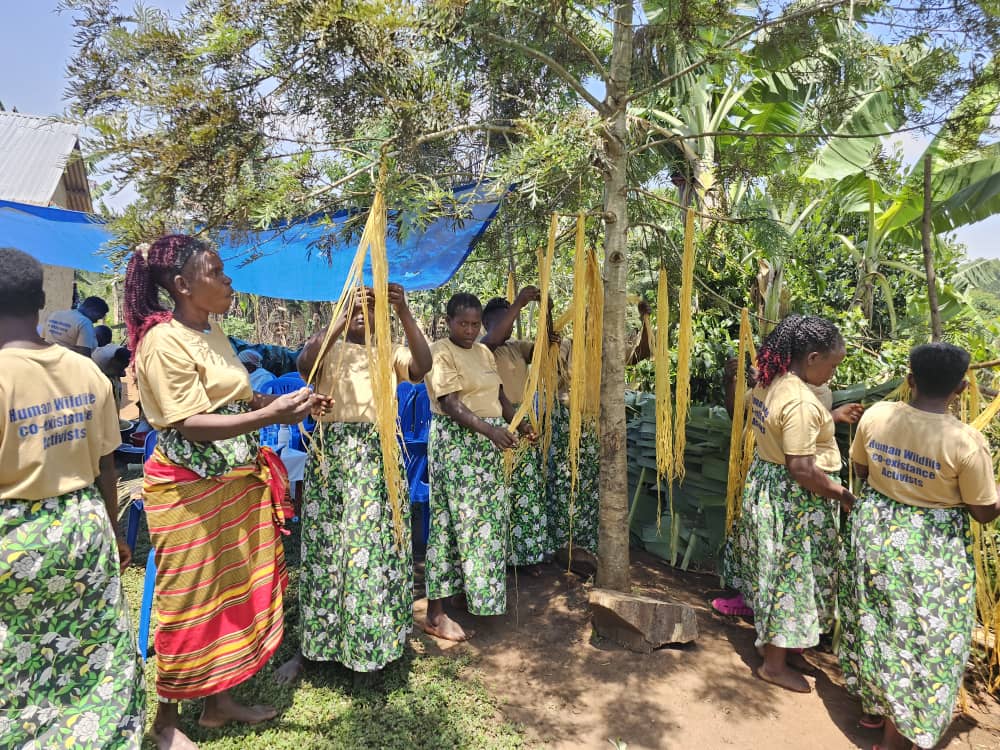
Community-based tourism also offers visitors immersive and authentic cultural experiences, particularly through activities like coffee picking, swamp walks, and banana beer making. These activities provide direct economic benefits to local communities. The coffee experience often takes tourists from the plantation to the cup, allowing them to participate in the entire process, including picking, roasting, and grinding beans, often under the guidance of smallholder farmers.
Similarly, guided swamp walks often through papyrus or other wetlands offer a unique opportunity to appreciate local biodiversity, such as the elusive shoebill stork, while generating conservation awareness and income for local guides. Finally, participating in the traditional method of banana beer (locally known as tonto or omubisi) making is a hands-on cultural lesson, showcasing a significant social and ceremonial drink.
Together, these experiences not only enrich the visitor's understanding of Ugandan life and traditions but also empower the host communities by turning their skills and natural resources into a sustainable source of livelihood.
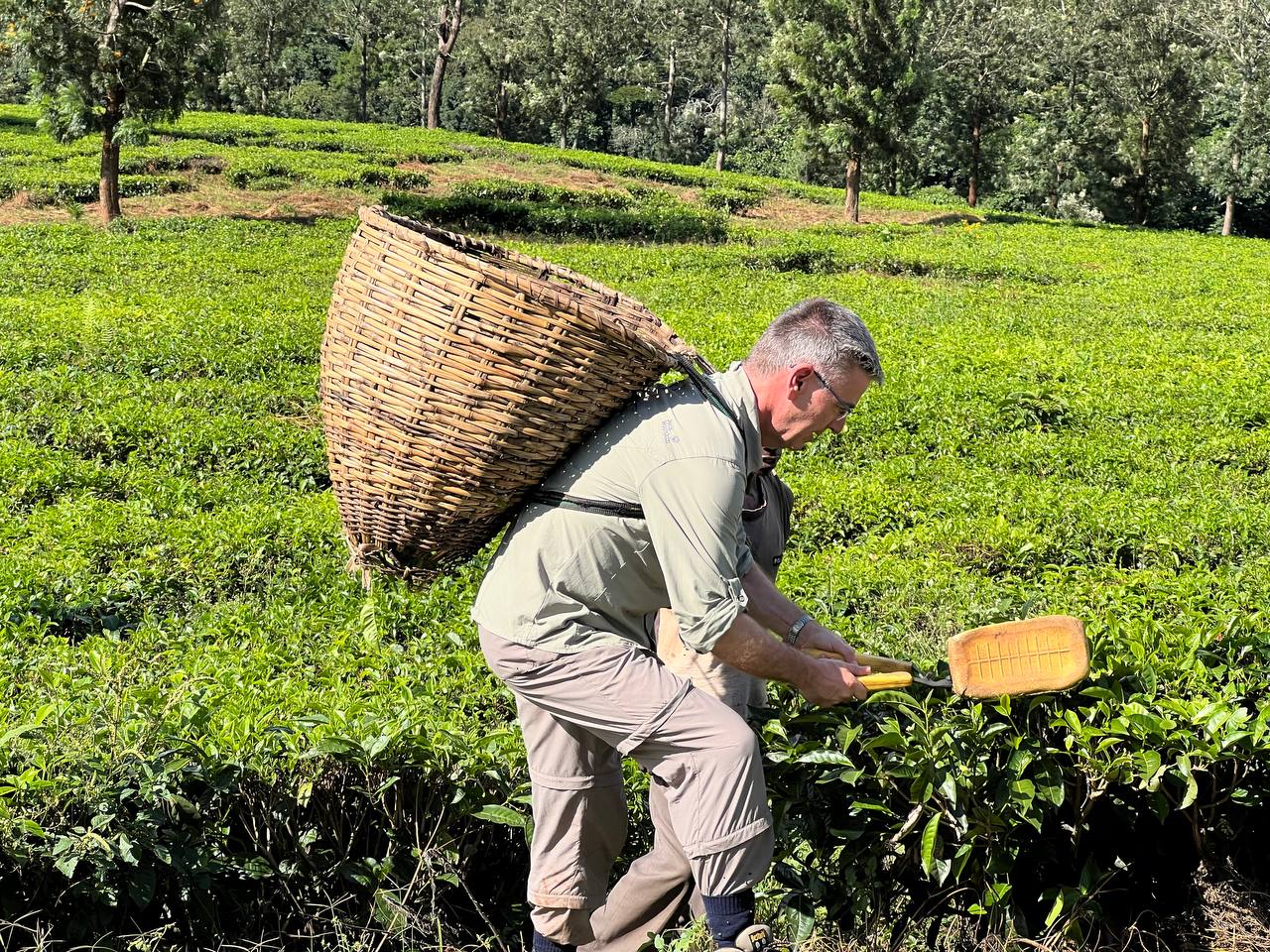

Where can I go for Community-Based Tourism in Uganda?
Uganda offers numerous impactful destinations for community-based tourism, often clustered around its famous national parks and natural attractions. A premier location is the area surrounding Bwindi Impenetrable National Park, where travelers can engage with the indigenous Batwa people on a cultural trail to learn about their ancient forest-dwelling heritage. The nearby Buhoma sector is home to organizations like Ride 4 a Woman, offering weaving, cooking, and craft workshops that directly empower local women through fair trade and skills training. Similarly, near Kibale National Park, the Bigodi Wetland Sanctuary is a highly successful community-run ecotourism project, providing guided nature walks by local guides to spot primates and birds, with all revenue funding local schools and clinics.
Other popular regions for cultural immersion include Lake Bunyonyi in southwestern Uganda, where you can arrange homestays, dugout canoe trips, and visits to the Batwa communities on the islands. In Eastern Uganda, the Sipi Falls area is famous for community-led coffee tours, where you can participate in the entire process from bean to cup with local farmers from the Sabiny and Bagisu tribes. Further west, at the base of the Rwenzori Mountains, the Ruboni Tourism Village offers cultural hikes and authentic interactions with the Bakonzo people. For a deep dive into Buganda's traditions near the capital, the Entanda Cultural Experience in Mityana provides cultural immersion through traditional wrestling, storytelling, and local cuisine.
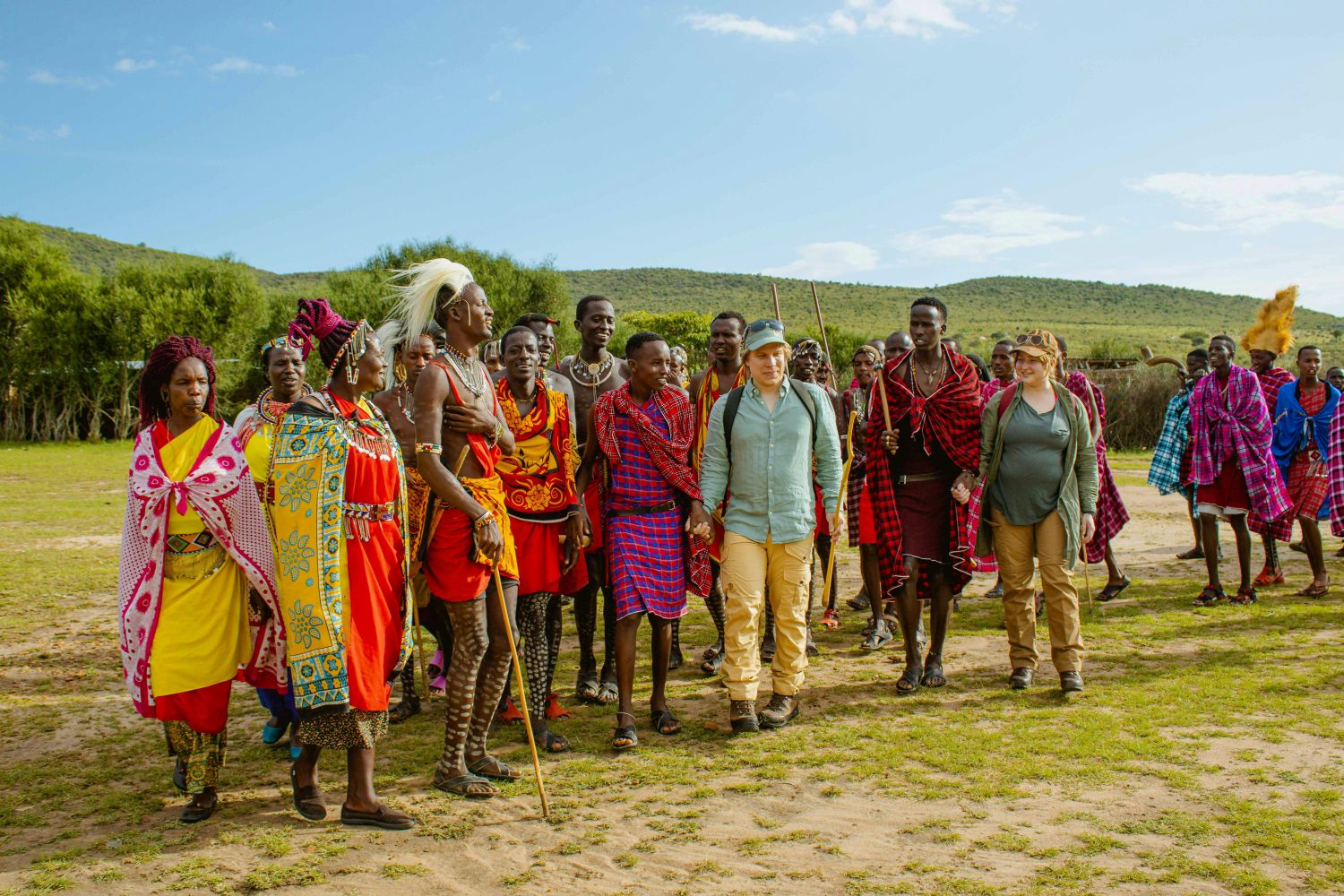
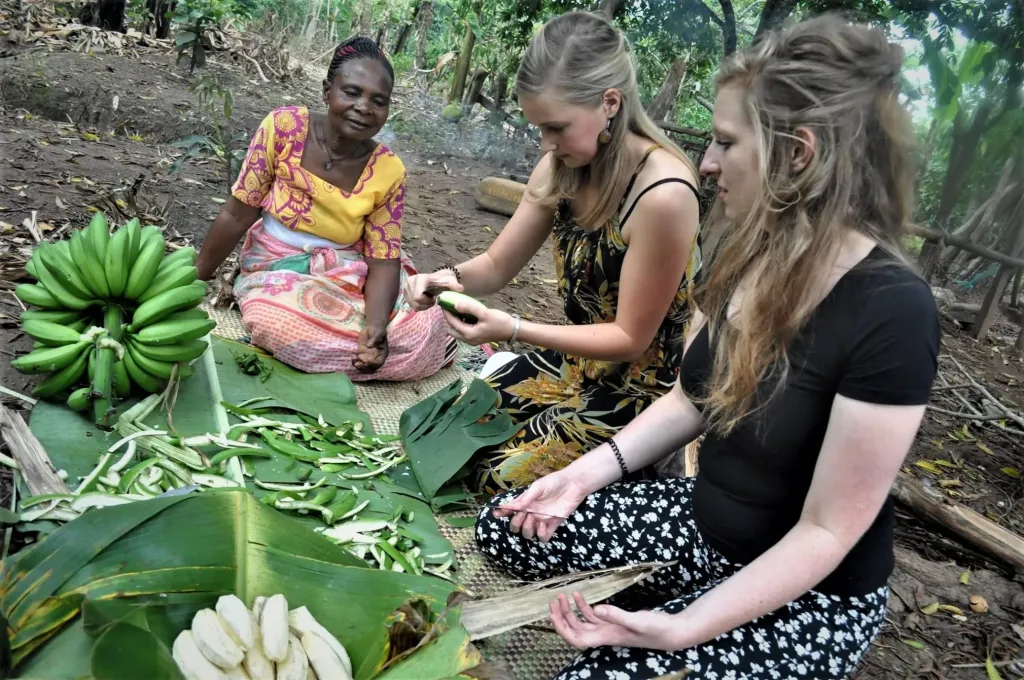
What to Expect from Community-Based Tourism
Expect an enriching and deeply authentic travel experience that goes far beyond traditional sightseeing. Community-based tourism (CBT) in Uganda is founded on the principle that the local residents are the primary hosts, managers, and beneficiaries, ensuring your visit has a direct and positive impact on their lives and environment.
The experience is centered on genuine cultural immersion and participation. You will likely engage in hands-on activities like guided village walks to learn about traditional farming methods, cooking lessons for preparing local dishes such as matoke or luwombo, and traditional craft workshops like basket weaving or bark cloth making. In places like the Batwa communities near Bwindi or the Karamojong in the northeast, you can participate in storytelling, traditional dances, and learn about ancient hunting or pastoralist lifestyles. Accommodation often includes homestays or community-owned lodges, offering a chance to share meals and conversations with local families, providing an unfiltered look into Ugandan daily life.
Beyond the activities, you should expect to be part of a sustainable development model. The money you spend goes directly to the community, helping to fund local projects such as schools, health clinics, and safe water initiatives, as seen with successful projects like the Bigodi Wetland Sanctuary. This model fosters a strong connection between conservation and community, as locals have a direct incentive to protect their natural and cultural resources, often leading to ecotourism experiences like guided nature or bird-watching walks. In return, you will gain a richer, more ethical, and more personal understanding of Uganda, a place where you are not just a spectator but a welcome guest.
When's the best time to embark on a community-based excursion in Uganda?
The best time for a community-based safari in Uganda is primarily determined by whether you prioritize optimal weather or better value and fewer crowds. The most popular time is during the two dry seasons: June to August and December to February. These months offer warmer, sunnier days, making travel easier on roads and trails for activities like village walks and gorilla trekking. However, this is the peak season, meaning you should expect higher costs for flights and accommodation, as well as more tourists in popular areas.
Alternatively, traveling during the two rainy or off-peak seasons, March to May and September to November, offers significant advantages for the budget-conscious traveler seeking a deeper cultural connection. You will benefit from lower prices and enjoy a more intimate experience with the local communities due to fewer tourists. While you must be prepared for some heavy rain and muddy conditions, the landscapes are at their most vibrant, and your visit provides crucial, stable income to community initiatives during their quieter months. For a balance of pleasant weather and reduced crowds, consider the shoulder months of early March, late May, early September, or early December.
Want to go on a community-based excursion in Uganda? Here's how:
Choose your spot: Bwindi, Queen Elizabeth, Kidepo, Murchison, or Kibale National Park
Get organized: You'll need permits, transport, and a place to stay. Afrika Panthera Safaris can help sort all this out for you.
How can we help:
Get your permits: These can be hard to come by, so we handle them.
Sort out where to stay: Afrika Panthera Safaris picks the perfect place for your community-based excursion.
Take care of transportation: Afrika Panthera Safaris makes sure you get from place to place without any trouble.
We make it easy: With our help, planning your community-based excursion is a breeze. We will give you all the latest info and help you plan your dream trip.
If you're excited to embark on this amazing excursion, get in touch with Afrika Panthera Safaris and start planning your adventure!

